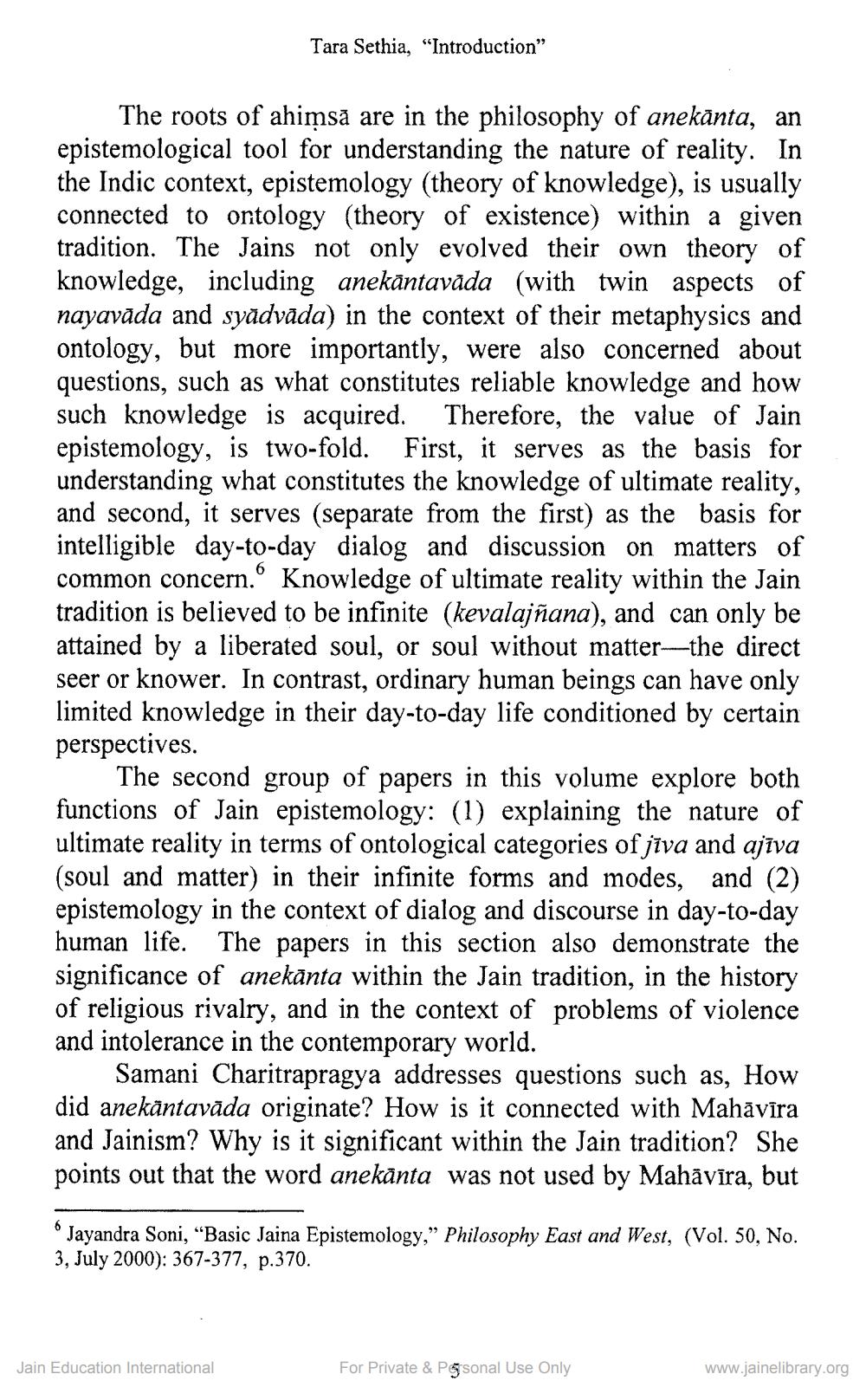________________
Tara Sethia, “Introduction”
The roots of ahimsă are in the philosophy of anekānta, an epistemological tool for understanding the nature of reality. In the Indic context, epistemology (theory of knowledge), is usually connected to ontology (theory of existence) within a given tradition. The Jains not only evolved their own theory of knowledge, including anekantavada (with twin aspects of nayavāda and syadvāda) in the context of their metaphysics and ontology, but more importantly, were also concerned about questions, such as what constitutes reliable knowledge and how such knowledge is acquired. Therefore, the value of Jain epistemology, is two-fold. First, it serves as the basis for understanding what constitutes the knowledge of ultimate reality, and second, it serves (separate from the first) as the basis for intelligible day-to-day dialog and discussion on matters of common concern.° Knowledge of ultimate reality within the Jain tradition is believed to be infinite (kevalajñana), and can only be attained by a liberated soul, or soul without matter--the direct seer or knower. In contrast, ordinary human beings can have only limited knowledge in their day-to-day life conditioned by certain perspectives.
The second group of papers in this volume explore both functions of Jain epistemology: (1) explaining the nature of ultimate reality in terms of ontological categories of jiva and ajīva (soul and matter) in their infinite forms and modes, and (2) epistemology in the context of dialog and discourse in day-to-day human life. The papers in this section also demonstrate the significance of anekānta within the Jain tradition, in the history of religious rivalry, and in the context of problems of violence and intolerance in the contemporary world.
Samani Charitrapragya addresses questions such as, How did anekāntavāda originate? How is it connected with Mahāvīra and Jainism? Why is it significant within the Jain tradition? She points out that the word anekānta was not used by Mahāvīra, but
Jayandra Soni, "Basic Jaina Epistemology," Philosophy East and West, (Vol. 50, No. 3, July 2000): 367-377, p.370.
Jain Education International
For Private & PSsonal Use Only
www.jainelibrary.org




